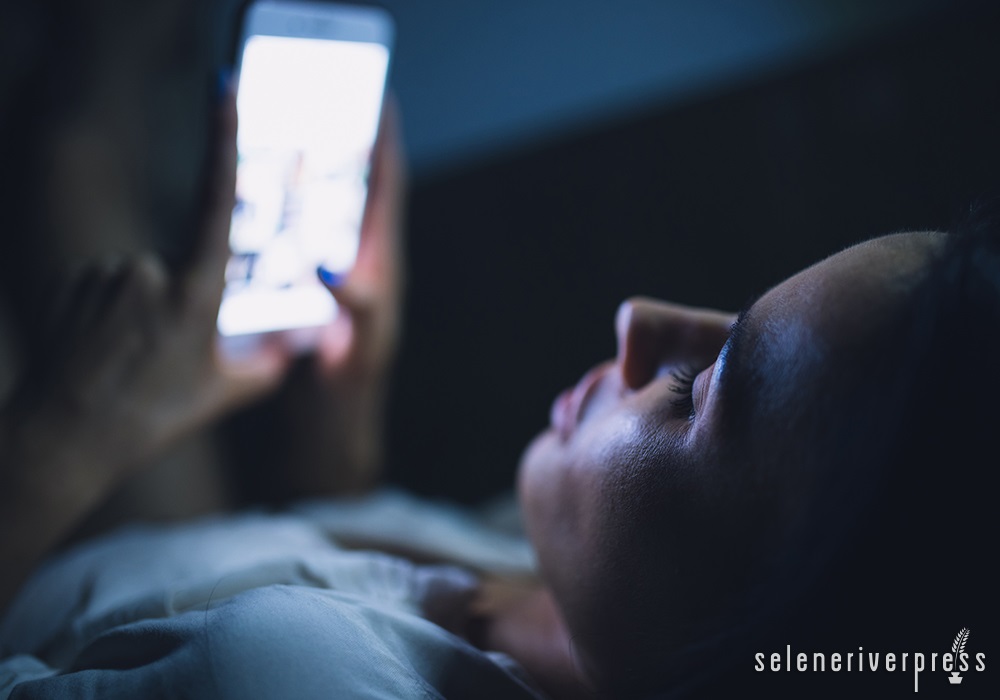There’s no denying the fact that many people in our modern culture experience serious sleeping problems, which accounts for why so many of us are ingesting a potent and possibly dangerous synthetic hormone, melatonin.
You may be thinking to yourself, What? I only take natural melatonin. This is a harmless sleep aid, and I won’t stop taking it. Well, dear reader, I hope you’ll allow me to place before you some surprising facts about melatonin that may be robbing you from what should be one of the most pleasurable parts of the day: bedtime!
Before I get started, I encourage you to read a great article by Dr. Lowell Keppel titled “Sleep Like a Baby.” However, unlike this blog post, which will focus on the side effects of synthetic melatonin, Dr. Keppel writes with an eye to addressing nutritional deficiencies that can go a long way to helping you get that much coveted good night’s sleep. Don’t miss out on his great nutritional recommendations.
Meanwhile, allow me to go on with the problems I see for those who use any form of melatonin as a sleeping aid.
The True Story that Prompted Me to Write About Melatonin
This particular tale of woe starts with a call from a good friend of mine. She came to me with an SOS to see if I could help with her dependence on melatonin as she was finding that she had to frequently increase her daily intake. Seems that she went through a rather rough time a few months ago, and her answer to those restless nights were easily resolved with 3 mg of melatonin at bedtime.
Nevertheless, after a few weeks she noticed that 3 mg wasn’t bringing on sleep as it had done in the beginning, so she decided to go with a 5 mg tablet. That too only worked for a while, and eventually she had to increase the dosage again. By the time she came to me, she needed 10 mg daily. Otherwise she just lay there in bed, unable to fall asleep!
She confided that she was concerned over the possibility that melatonin is addictive. Or if not, she wondered if there was something about melatonin that she didn’t know. She was genuinely anxious to rediscover how to fall asleep without the added cost and side effects of this so-called “natural” supplement. What follows is my advice to her. I also promised that I would write about the side effects of melatonin so she could share this information with her family and friends.
The Opinion of Other Holistic Practitioners
Already I tend to agree with other practitioners who feel that negative reactions may come as the result of giving your body a SYNTHETIC hormone, which melatonin is when taken in supplement form. Their sense is that once your brain recognizes that it doesn’t need to produce the hormone on its own, it simply stops producing it and instead waits for the larger and larger dosages of the synthetic form of melatonin!
Can I confirm their opinion? Well, not in scientific terms. But in doing the research for this article, I read about many serious and dangerous side effects. And I can believe that, at least in some people, these side effects may produce the need for higher and higher dosages. Let’s explore a little more about this synthetic hormone and learn how we can help the brain produce its own truly natural melatonin. A great deal is still unknown about the side effects of this drug, regardless that it is labeled “natural.”
The Pineal Gland and Melatonin Production
As I establish above, melatonin is a hormone. It’s produced in the brain by the pineal gland. The pineal gland has many functions, but the best-known effect is that it controls our daily circadian rhythm. The pineal gland is part of the endocrine system (which also includes the hypothalamus and pituitary glands). It’s a tiny, rice-sized gland located in the center of the brain between the left and right hemisphere, behind and above the pituitary gland.
Investigating Reported Side Effects
It’s unfortunate that as many of us browse the shelves of our local health food stores, drugstores, or even grocery stores, we may unwittingly take as gospel whatever the store clerk suggests—without realizing that they may not have in-depth knowledge about the product and its side effects. (They are, after all, there to sell, not to consult as would a pharmacist.) Therefore, I’ve taken the liberty below to paraphrase some of the side effects associated with synthetic melatonin, as documented in the Livestrong article “Bad Side Effects of Melatonin Supplements.” (However, I recommend reading the article in full.)
Daytime drowsiness: It sounds to me that drowsiness may possibly be a cumulative effect of melatonin. According to the Mayo Clinic, drowsiness may indicate the need to lower your dosage. If you’re drowsy the next day, extreme caution should be used when driving or operating machinery as you may not realize that you’re impaired.
Changes in sleep: Many people experience sleep aberrations like sleepwalking, vivid dreams, and nightmares. I would never give it to any adolescent or child for this reason. Additionally, overuse may disrupt the circadian rhythm and therefore add to your inability to experience normal sleep patterns. Because melatonin is released once you’re exposed to darkness, it’s easy to use improperly.
Hormonal changes: Melatonin may cause hormone levels to change, which could affect other hormones controlled by the pituitary gland. Developmental disorders in the baby may occur when taken by a woman who is pregnant, nursing, or trying to become pregnant. A decrease in sperm count and increased breast size is a common side effect in men. Decreased sex drive in both men and women is also a side effect.
Changes in mood: According to MedlinePlus, changes in mood can occur, especially if you’re overdosing. You may experience symptoms of depression, giddiness, and sadness. There have also been reported cases of paranoia, delusion, and hallucinations. A person with psychotic disorders should consult their medical doctor before using this drug.
Cholesterol and blood pressure: Increased cholesterol levels and a decrease in blood pressure may be a caused by the use of melatonin supplements. Elevated blood sugar levels may occur in type 1 diabetics who take melatonin. Arrhythmia of the heart is often associated with regular use of melatonin supplements.
Interactions with drugs: Negative reactions from using melatonin alongside antipsychotic and antidepressant medications, steroidal medications, birth control pills, anti-inflammatory medications, blood thinning and blood pressure medications may occur. Patients with any of these issues should consult their medical doctor.
Disorientation and seizures: Patients may experience disorientation and seizures, according to MedlinePlus. These side effects are generally reported with overdosing on melatonin supplements. Close supervision of a physician in these cases is important.
Autoimmune disorder risks: According to Medline Plus, there are reports of increased autoimmune disorders such as hepatitis and the onset of Crohn’s disease, which may include stomach cramping, nausea, and vomiting.
How Do We Make Our Own Melatonin?
Like many other things in life, trusting your own body to make melatonin first takes a little understanding of the dangers of using synthetic supplements. An expert opinion from a holistic practitioner or an article such as this one is worth its weight in gold and could save your life. Hopefully, the information above has given you a good reason to stop making what looks like a very risky choice for getting good night’s sleep.
We now know that our body produces less melatonin as we age. We also know that we produce less melatonin whenever we’re overly exposed to blue light from computer screens, smart phones, TVs, and artificial lights. All of these things increase the inability of the body to produce natural melatonin, and it’s especially worse when you do any of these things within a few hours of bedtime.
Quora suggests the following tips for insomnia. Here I quote directly from their Q&A about melatonin and insomnia:
- Try to have a consistent sleep routine. This is SUPER important.
- Make sure you exercise daily.
- Take a hot shower/bath before bedtime.
- Make sure the temperature in your room is cool.
- Make sure your room is as dark as possible. Think cave!
- Stay away from electronics. Blue light tells your body it’s daytime.
- If you are sensitive to sound, get some earplugs.
- Avoid eating large meals before going to bed.
- Avoid alcohol, cigarettes and caffeine before bedtime.
I would add two more suggestions: 1) find a holistic practitioner who can help you determine the health of your endocrine system; and (2) commit yourself to harnessing stress, the most devastating emotion that not only reduces your ability to make your own melatonin but also shortens your life. Please read my blog post “The Longevity Secret, Part I.”
And be sure to look at the fantastic whole food supplements that Dr. Lowell Keppel suggests in “Sleep Like a Baby.” Those whole food supplements and the information in my blog post “The Longivity Secret, Part I” will produce that natural sleepy sensation that we all crave—and without any dangerous side effects.
My Favorite Sleep-Inducing Cocktail
—If you don’t like milk, you may try substituting unsweetened and unfiltered apple juice.
Ingredients
1 small glass slightly warm raw milk or organic non-homogenized milk
1 teaspoon Calcium Lactate Powder
2–3 capsules Magnesium Lactate, opened and placed in milk
Instructions
Mix these ingredients about 30 minutes before bedtime and drink it down. Now just relax in your darkened bedroom with no blue light anywhere near you. Snuggle up, close your eyes and see your body floating on a soft cloud toward that blessed dreamy state of peace! Another little secret about this cocktail is that by next morning you will have a great emptying of the bowel. (Smile)
[xyz-ihs snippet=”Begin-Authors-Note”]Afterthoughts from the Traditional Cook
Only in sleep I see their faces,
Children I played with when I was a child,
Louise comes back with her brown hair braided,
Annie with ringlets warm and wild.
Only in sleep Time is forgotten—
What may have come to them, who can know?
Yet we played last night as long ago,
And the doll-house stood at the turn of the stair.
The years had not sharpened their smooth round faces,
I met their eyes and found them mild—
Do they, too, dream of me, I wonder,
And for them am I too a child?
—“Only in Sleep,” Sara Teasdale
Note from Maria: I am a Certified Natural Health Professional, CNHP, not a medical doctor. I do not diagnose, prescribe for, treat, or claim to prevent, mitigate, or cure any human diseases. Please see your medical doctor prior to following any recommendations I make in my blogs or on my website.
Images from iStock/AntGor (main), ttsz (hormone chart), Ljupco (man sleeping).






